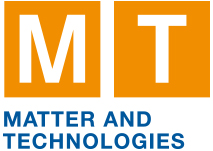Speaker
Description
Machine learning (ML) models trained on classical simulations often face challenges when applied directly to experimental data due to significant domain gaps, as simulations cannot fully replicate real-world conditions. We address this issue specifically in neutron and X-ray reflectivity analysis, where determining thin film parameters from reflectivity curves is an inherently ambiguous inverse problem due to the lack of phase information. Traditional neural networks typically provide either a single or averaged solution, failing to represent the full range of possible physical parameters inherent in the problem.
In this study, we employ conditional normalizing flows (cNFs) combined with an embedding network based on β-Variational Autoencoders (β-VAEs) to encode reflectivity curves and effectively learn the full distribution of physical parameters. To further improve performance on experimental data, we systematically explore three strategies for bridging the simulation-experiment domain gap: (1) fine-tuning simulation-trained models with labeled experimental data, performing a comparison between fine-tuning the flow and embedding network separately; (2) utilizing generative networks to create realistic synthetic datasets or to transform experimental data to resemble simulations; and (3) introducing a novel physics-informed approach, which leverages the known physical relationship between scattering length density (SLD) profiles and reflectivity curves. We use a differentiable forward function, relying on the kinematic approximation, to guide generated sample parameters via physics-informed loss during bidirectional training of cNFs.
Our approach distinctly leverages unlabeled experimental data to address cNF performance challenges on real-world reflectivity data. Additionally, this methodology can be broadly applied beyond neutron and X-ray reflectivity, benefiting other scientific domains facing similar inverse problems and domain-transfer challenges.
| Speed talk: | I am unwilling/unable to present a speed talk |
|---|

